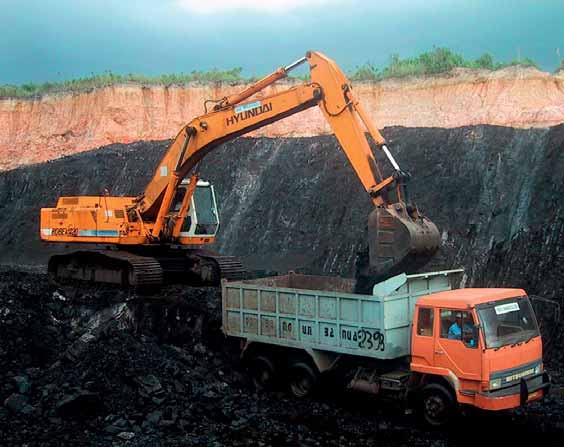Ind

onesia is taking urgent steps to ensure that foreign investment in coal ports, rail systems and mines becomes easier and more transparent. But critics claim more still needs to be done.
Indonesia’s miners have had great success in boosting thermal coal output from Kalimantan over the last decade, primarily by using barge and offshore transshipment solutions. But if further export growth is to be achieved then less accessible deposits in Kalimantan and Sumatra need to be developed. Many of these new mines will not have ready access to inland waterways and will require lengthy conveyor belts or new rail tracks to reach coal loading facilities on the coast.
It is readily recognized in Indonesia that the capital burden of such projects will mean attracting heavy foreign investment. But although Indian and Chinese companies remain eager, over the last decade Indonesia has gained a reputation among many foreign investors as a graveyard for large infrastructure projects, despite analysts being in agreement that Indonesia’s economic growth is currently being stymied by its failure to boost its logistics capacity.
The reasons for this are many varied, ranging from the country’s chaotic legal system and confusing overlapping laws, through to rampant corruption and turf wars between different federal ministries.
In the World Bank’s 2010 Logistics Performance Index, Indonesia ranked 75th, far below Thailand, Malaysia and even the Philippines, countries to which Indonesia regularly loses out when foreign companies look to make new investments in South East Asia.
Indonesia also ranked a lowly 110 out of 178 countries in Transparency International’s 2010 Corruption Perceptions Index with a score of 2.8 out of 10.
One Reuters examination into a new coal mine to port railway project in Sumatra by Bukit Asam concluded that
Coal mining in Indonesia.
investing in Indonesia now was far harder than under the corrupt regime of President Suharto which ended in 1998, not least because a myriad of local interests which were leading to incessant delays. Investors were forced to pay off all number of local gangs and provincial interests while the issuing of licenses was proving a lottery.All of this was delaying the project and driving up costs, as well as discouraging others from making similar investments.
However, there has been some progress lately. Ratings agencies have been raising Indonesia’s credit rating at a time when they have been downgrading Western economies. In January this saw Moody’s Investors Service return Indonesia to investment grade for the first time since the Asian financial crisis in 1997-98, a major step for the country.
In December, a long-awaited land acquisition law was also passed, a step which should allow infrastructure projects to move forward more quickly.
But the announcement at the end of January that a government-promoted container terminal tender which had attracted multiple expressions of interest had been cancelled because state funding was no longer available was a step backwards. This was the only ongoing tender nationwide to build desperately needed new port capacity, despite a port reform law being passed four years ago designed to attract inward investment.
Speaking at McCloskey Asia Pacific Coal Outlook Conference 2011 held in Bali, Indonesia, Paul Clayton, technical director for transportation in Asia at engineering company AECOM, said the risks of embarking in major infrastructure projects in Indonesia could be overpowering.
He cited government approvals as a “big issue” for rail coal mining projects with port links. He also said that the government insistence that any new railways must have a ‘public
economic benefit’, that is, it must also cater for passengers, was another factor discouraging investment in the country’s coal infrastructure.
With a looming global shortage of engineers, he said Indonesia needed to make infrastructure projects easier to achieve or risk project companies going elsewhere in search of more rewarding pickings.
“Indonesia has got to wake up,” he said. “Where a project can be fast-tracked we go for it. In Indonesia it’s like walking down a path and falling down a series of legislative holes.”